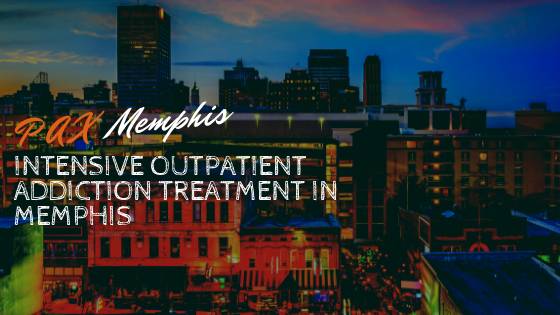After completing the partial hospitalization portion of drug rehab, transitioning out of treatment can be difficult. You may be faced with various life challenges, such as transitioning into a sober living home, finding a new job, and repairing relationships broken by addiction. In addition, you may face the temptation of falling into old habits. However, attendance in an intensive outpatient addiction treatment program can help make this transition out of residential treatment much easier.
Intensive outpatient rehab programs (IOP) offer drug and alcohol treatment that is held during specific times throughout the week. It is often available as a step down from inpatient rehab. Outpatient treatment is held in a variety of different formats, such as group and individual sessions. This provides clients with aftercare counseling, education, and access to a support network.
Why is intensive outpatient treatment important?
Clients who have a strong desire to stay sober can greatly benefit from participating in intensive outpatient drug rehab. Most addictions don’t form overnight, and recovery works the same way. It cannot be completely overcome in a short period of time. Although things like partial hospitalization programs (PHP) and medication-assisted treatment (MAT) can be extremely useful tools that aid in addiction recovery, none of these provide a cure. Instead, recovery from addiction requires extensive, long-term treatment. Intensive outpatient treatment is a form of aftercare that can ease the transition out of inpatient or residential rehab.
One goal of intensive outpatient addiction treatment is to help individuals foster healthy relationships and develop a sense of purpose. Through group therapy, individuals can speak with others about their struggles and their progress in a setting that is supervised by a licensed therapist. Clients will learn how to enhance their social networks, utilize peer support groups, improve their current relationships, and be involved in a community of like-minded people.
Another goal of intensive outpatient aftercare is to help prevent relapse or addictive behaviors. Prolonged substance abuse often alters the normal functioning of the brain. The changes that need to take place in recovery don’t happen overnight. (metfoods.com) Since clients may still struggle with their thoughts, feelings, behaviors, and decision making, intensive outpatient treatment can help aid in the recovery process. Having a safe place to go provides clients with the opportunity to discuss their feelings, get help with making decisions, and gain more insight into their behavioral patterns.
Even after completing PHP and learning healthy coping mechanisms, recovery can still be full of unexpected surprises. Whether a person is faced with an emotional trigger, a craving, or an unexpected loss of a loved one, being able to talk about these things with an addiction counselor and a support group can be extremely beneficial. A counselor can help guide individuals through these challenges and teach them ways to cope while peers can provide emotional support and insight.
Components of Intensive Outpatient Addiction Treatment
The main components of intensive outpatient rehab include individual therapy, group therapy, family therapy, and mental health counseling. When used in an addiction treatment modality, these formats can provide for a successful recovery.
Individual therapy
Individual therapy gives clients an opportunity to meet one on one with a therapist whom they trust. This is where they can discuss private issues that are on their minds, formulate a specific treatment plan tailored to his or her needs, and gain emotional support.
Group Therapy
Group therapy allows individuals to get a deeper understanding of addiction while gaining support from others in the group. This can help individuals be held accountable, learn from others, and gain support from their peers.
Family Therapy
Addiction often affects the entire family of a suffering loved one. Sometimes, family members take on unhealthy behaviors themselves. Fortunately, participating in family therapy can help entire families heal from addiction.
Mental Health Counseling
Nearly 50% of people who suffer from addiction also have a co-occurring mental illness.[1] When treating addiction, it is equally important to treat mental health as well. In mental health counseling, patients will learn ways to cope with symptoms of mental illness and how to improve their mental health.
IOP at PAX Memphis Recovery Center
At PAX Memphis Recovery Center, we offer intensive outpatient treatment to help ease the transition out of PHP levels of care. After completing the PHP level of care, individuals are moved down a step of care to Intensive-Outpatient or IOP. Typically individuals will receive between 9 and 15 hours of clinical care from our licensed therapists.
In this program, individuals will be able to develop a strong support group and learn skills to help heal from addiction. In addition, our IOP program is available to those who do not have the luxury of taking time off work and discontinuing other responsibilities to attend inpatient treatment.
If you or a loved one is suffering from addiction, contact our addiction specialists in Memphis today to inquire more about our drug and alcohol PHP and IOP treatment programs.
Resources
Medically Reviewed: September 25, 2019

All of the information on this page has been reviewed and verified by a certified addiction professional.










